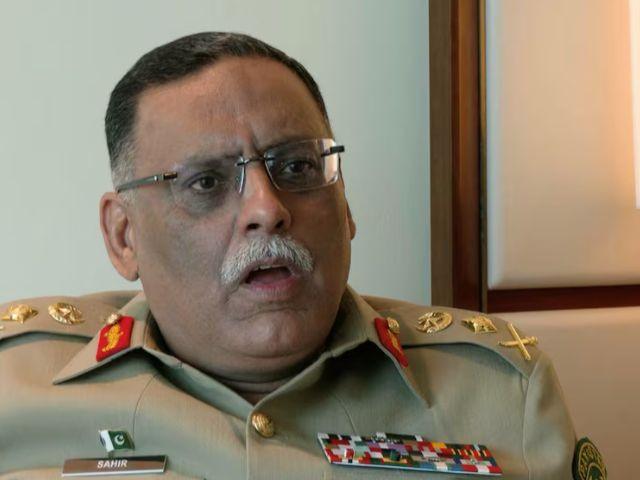Pakistan and India are close to reducing the troop building along their border to levels before the conflict broke out between the nuclear armed neighbors this month, General Sahir Shamshad Mirza, Pakistan’s chairman of the joint staff chiefs, told Reuters on Friday, although he warned the crisis had increased the risk of escalation in the future.
Both sides used fighter jets, missiles, drones and artillery in four days of clashes, their worst matches in decades before a ceasefire was announced.
The recent clashes between Pakistan and India arose after the Pahagam attack on April 22 in Indian illegally occupied Jammu and Kashmir (IIOJK), who killed 26 people, most of them tourists.
New Delhi blamed the incident without proof of Pakistani elements, a charge denied by Islamabad that sought an independent probe in the incident.
Breaking 🚨
Pakistan & India withdraws troops from the forward positions, confirmed by President Joint Chiefs of Staff Committee. “We’ve almost returned to the before-22 April situation,” Gen Sahir Shamshad Mirza told Reuters. pic.twitter.com/wendodjhzq
– Murtaza Ali Shah (@murtazaviews) May 30, 2025
On May 7, India launched missiles in civilian places, which it claims to describe as “terror infrastructure” across the border.
This got a defensive reaction from Pakistan and a subsequent troop building of both countries along the border.
General Sahir Shamshad Mirza, Pakistan’s chairman of the joint staff chiefs, said the two military had started the process of pulling down troop levels.
“We’ve almost returned to the pre-April 22 situation … We are approaching it or we must have contacted it now,” said Mirza, the most senior Pakistani military official who speaks publicly since the conflict.
India’s Defense Ministry and the Office of the Indian Defense Chief did not immediately respond to Reuters’ requests for comment on the comments of Mirza.
Mirza, who is in Singapore to participate in the Shangri-La Dialogue Forum, said that while there was no movement against nuclear weapons during this conflict, it was a dangerous situation.
“Nothing happened this time,” he said. “But you can’t rule out any strategically wrong calculation at any time, because when the crisis is turned on, the answers are different.”
He also said that the risk of escalation in the future had risen as the fighting this time was not limited to IIOJK, the scenic region of the Himalayas, which both nations partially control, but claim fully.
Dangerous trend
The two countries have fought for three major wars, two of them over the disputed Kashmir region and several armed three -day, since both were born of British colonial India in 1947.
“This (conflict) lowers the threshold between two countries that are coherent nuclear forces … In the future, it will not be limited to the disputed area. It would come down to (that) all of India and (the) whole Pakistan,” Mirza said. “This is a very dangerous trend.”
Reuters has reported that the rapid escalation of hostilities ended partly because of diplomacy behind the scenes involving the United States, India and Pakistan, and the key role Washington played in the brokerage of peace.
India continues to deny every third party’s role in the ceasefire and said that any commitment between India and Pakistan must be bilateral.
But Mirza warned that international mediation can be difficult in the future due to a lack of crisis management mechanisms between the countries.
“The time window for the international community to intervene would now be much less, and I would say that injuries and destruction can take place before that time window is utilized by the international community,” he said.
Pakistan was open to dialogue, he added, but in addition to a crisis hotline between the director’s general of military operations and some hotlines at the tactical level on the border, there was no other communication between the two countries.
Mirza said there was no backchannel discussions or informal conversations to facilitate tension.
He also said he had no plans to meet General Anil Chauhan, India’s head of defense staff, who is also in Singapore for Shangri-La Forum.
“These questions can only be solved by dialogue and consultations at the table. They cannot be solved on the battlefield,” Mirza said.



